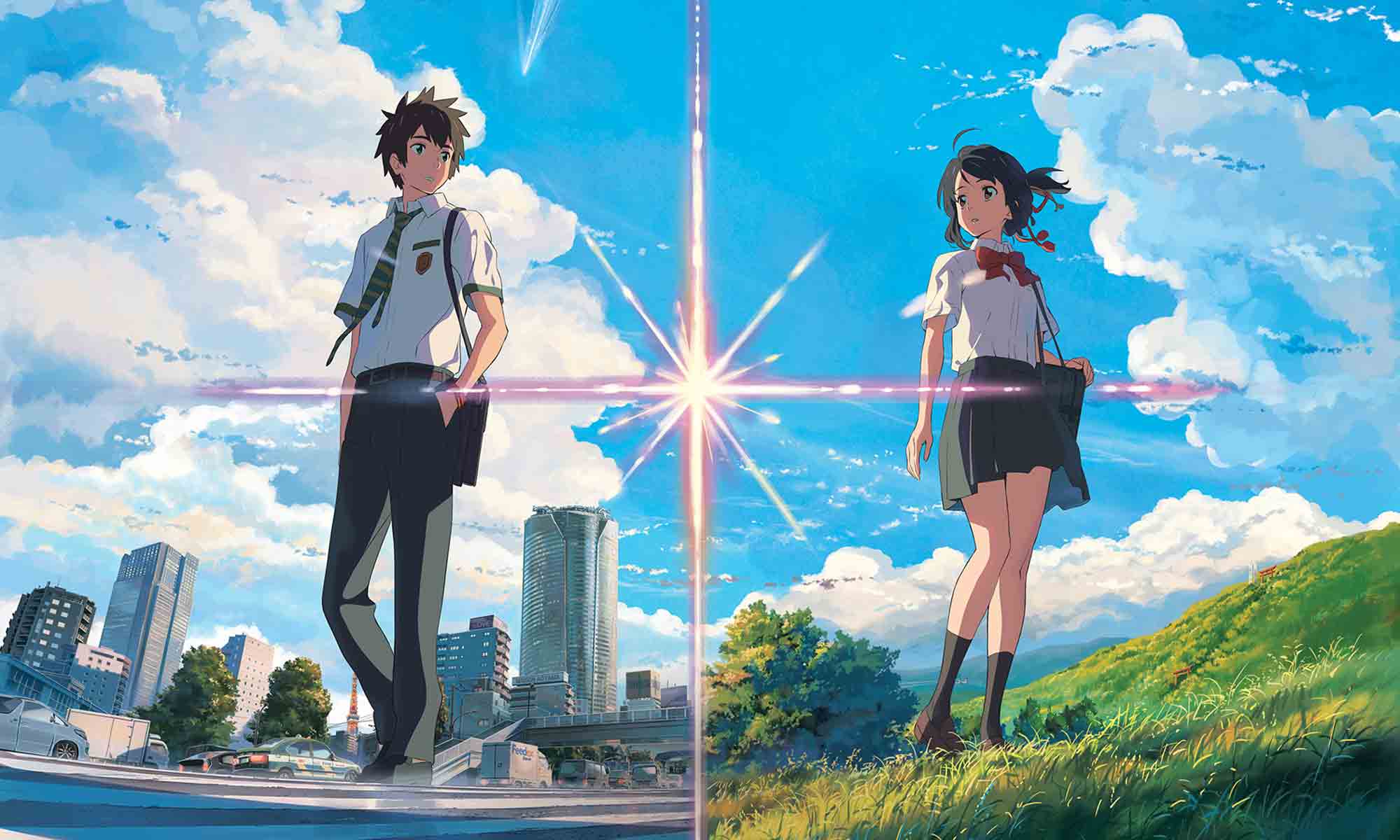By Andrew Hamlin
Northwest Asian Weekly

![]()
![]()
![]()
![]()
A teenage boy in Tokyo. A teenage girl in a small town called Itomori. Each one of them wishing they could be the other — or at least, something like the other. And when each one gets his/her wish … expect the unexpected.
Master animator Makoto Shinkai, adapting his own novel, turns “Your Name” into a baffling obstacle course on a formal level. It starts out alternating interior monologues with odd silences, and odder flashes of black screen. Shinkai’s forming something out of nothing, and since our two lead characters spend a lot of time inside each other’s heads, discombobulation seems in order.
I’ve not read the original novel, but onscreen, his story comes right up to the razor’s edge, where discombobulation falls into chaos. We know that the boy, Taki Tachibana (voiced in Japanese by Ryunosuke Kamiki, in English by Michael Sinterniklaas), comes to change bodies with the girl, Mitsuha Miyamizu (voiced by singer Mone Kamishiraishi, in English by Laura Post), but exactly why this happens is never made clear, although several hints — some cosmic, others more earthly — get dropped. The narrative also plays around with time a great deal. I could eventually figure out, for the most part, the past from the present. For the most part. Until towards the end.
The end, not to give away too much, becomes remarkably complicated, because for the first time, we’re not sure what’s real, in this fantasy Japan, and what’s taking place not-quite-on-Earth…
Shinkai’s visual sense saves the day, as it always does. Frequently typed as “the new Miyazaki” (an appellation both men must resent by now, and which Shinkai disavows), the younger man’s underlying strength does not lie in fantastic landscapes, characters, or creatures. When he ventured into that territory with 2011’s “Children Who Chase Lost Voices,” he came off as passable, intriguing, but slightly rote. He returned to his love of the everyday for “The Garden of Words,” with renewed vigor.
The man is in love with trains. He’s in love with views from moving trains, with views of trains themselves moving, through cities, through fields, through countrysides at twilight. He’s in love with twilight itself, the last prismatic rays of a bright sun lasering forth from the west. He’s in love with train stoplights: orange, blue, white ice-cream hues flashing in sequence. He’s in love with cityscapes, especially nightscapes, the yellows and whites and crisp neons flashing from black. He’s in love with Japanese rice cookers, like slightly-fatter portable CD players, white with dark digital controls – they’ve figured somewhere in most of his movies since his short “She and Her Cat,” from 1999.
I won’t give away too much of the story, especially since I still don’t understand aspects of it. I think over repeated viewings, which “Your Name” assuredly deserves, such story concerns will shake themselves out. The film includes Shinkai’s running complicated variations on an old, most honorable theme: Will love save the day? And beyond that, a crucial twist — will the good that people do, from that love, outlast their own memories, their own perceptions, of what they did? And is that more important than being able to put a name, any name, to love?
“Your Name” is now playing in theaters in and around Seattle. Check local listings for locations, prices, and showtimes.
Andrew can be reached at info@nwasianweekly.com.



